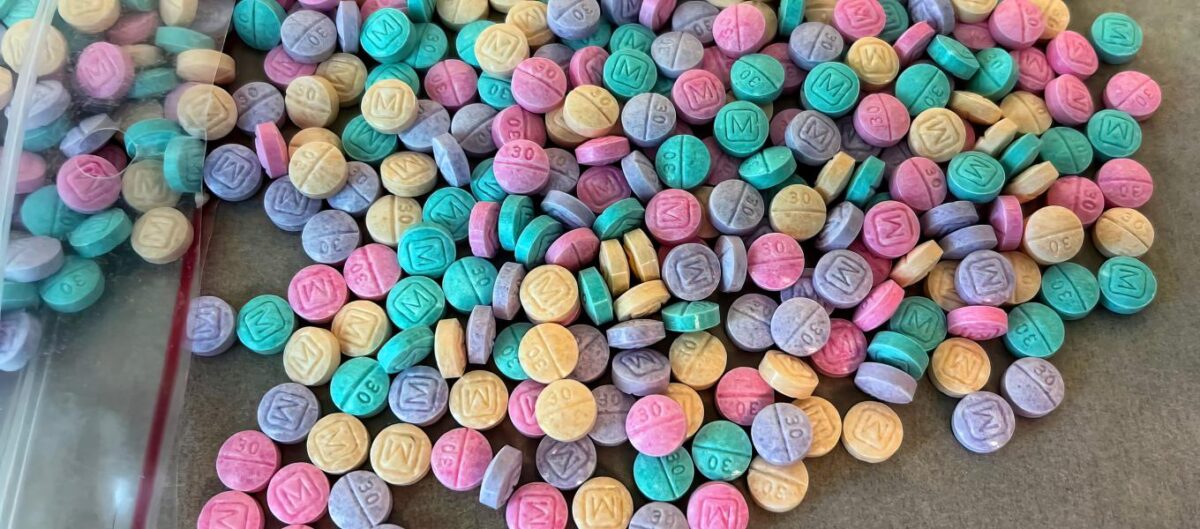

North Texas Couple Charged With Distributing Fentanyl That Led to 3 Teen Deaths, Multiple Poisonings

A North Texas couple is accused of running a fentanyl ring linked to three student deaths and at least six hospitalizations.
On Friday, Luis Eduardo Navarrete, 21, and Magaly Mejia Cano, 29, were arrested at a Carrollton home where they allegedly sold fentanyl-laced pills to eight R.L. Turner High School students between 14 and 16 years old, according to charging documents that were unsealed on Monday. (pdf)
After buying the drugs, the students then sold them to their classmates at the high school and to younger students at nearby DeWitt Perry and Dan F. Long Middle Schools.
Navarrete and Cano are charged with conspiracy to distribute a controlled substance, according to the documents. Fentanyl is a synthetic opioid that is 50 times more potent than heroin and up to 100 times more potent than morphine.
“To deal fentanyl is to knowingly imperil lives. To deal fentanyl to minors—naive middle and high school students—is to shatter futures,” U.S. Attorney for the Northern District of Texas Leigha Simonton said in a news release. “These defendants’ alleged actions are simply despicable.”
Nine teens were poisoned after taking the fentanyl-laced drugs, commonly known as “M30” pills, between September 2022 and February 2023. Three of the teenagers died.
Jordy Navarrete, a 17-year-old student at R.L. Turner, told KDFW News that Luis Navarrete is his cousin and that he was living with his family at the Carrollton house.
“I had nothing to do with that, and I just want to make sure my family is okay,” Jordy said, adding that he knows how deadly fentanyl is and that he is “against it.”
Law enforcement began surveilling the home starting on Jan. 5, the documents stated.
They allegedly observed Navarrete and Cano making “hand-to-hand transactions with multiple individuals.” Many of the transactions involved students from the high school.
On Jan. 12, a 16-year-old student was observed making a purchase from Navarrete. The teen crushed up a pill and snorted it on the porch of the home.
Then the officers followed the 16-year-old to the high school, where he went into a bathroom stall and snorted more drugs. The student later told police that he got the “perc” pills from Navarrete.
The DEA Dallas Field Office and the Carrollton Police Department conducted the investigation with help from student resource officers from the Carrollton-Farmer’s Branch ISD.
The mother of one victim told The Dallas Morning News that she asked school officials for help before her son died from a suspected fentanyl poisoning last month.
Lilia Astudillo, 39, said she worried that her son José Alberto Perez might be using drugs after she began noticing behavioral changes in him. She went to the staff at Dan F. Long Middle School and asked for help.
“I didn’t get help … they didn’t want to help me,” Astudillo told the newspaper.
The 14-year-old died in late January.
“Had the district helped me when I reached out, my son wouldn’t be dead today,” she said.
The autopsy report is pending, but Astudillo believes her son died from fentanyl.
Carrollton-Farmer’s Branch ISD did not respond to a request for comment regarding Astudillo’s claims that the district denied her requests for help.
Another victim, a 14-year-old girl, overdosed on Christmas Eve at her home and again on Jan. 16, according to the court documents. She spent multiple days in the hospital and suffered temporary paralysis.
The girl told authorities that she got the “M30” pills from two separate 16-year-old dealers. She also said she had purchased multiple “M30” pills directly from Navarrete.
“We can never replace the three teenagers whose lives were lost, nor can we heal the psychological damage of those who survived their overdoses. But we can take action to ensure these defendants are never allowed to hand a pill to a child again,” Simonton said.
The youngest poisoning victim was 13 years old, and the most recent death occurred on Feb. 1, according to the court papers.
The school district issued a statement on Monday after the news broke about Navarrete and Cano’s arrests:
‘We must come together as a community to solve this problem that is endangering our children,’ said Briann Moersch, Interim Superintendent. ‘We strongly encourage adults to engage in open conversations with children about the risks of drugs, especially fentanyl.’
We will continue to work cooperatively with local law enforcement agencies to address this issue and to maximize safety on our campuses in every way possible. We believe if we work together as a community, we can avoid these tragedies.
The district said it has taken several actions to educate the community on the dangers of fentanyl, including an email to parents on Oct. 31, 2022, and presentations on Nov. 9 and Nov. 12, 2022. The district has made Narcan available at all campuses in the event of poisoning. It has also started conducting random canine drug searches on secondary campuses.
A previously scheduled Student Health Advisory Council presentation on fentanyl is scheduled for 7 p.m. on Feb. 9 at the Educational Services Division Complex.
On Monday, Navarrete and Cano made their initial appearances in a federal court in Dallas. Cano is expected to appear for a detention and preliminary hearing on Friday, The Dallas Morning News reported. Navarrete waived his right to a hearing.
If convicted, each faces up to 20 years in federal prison.
